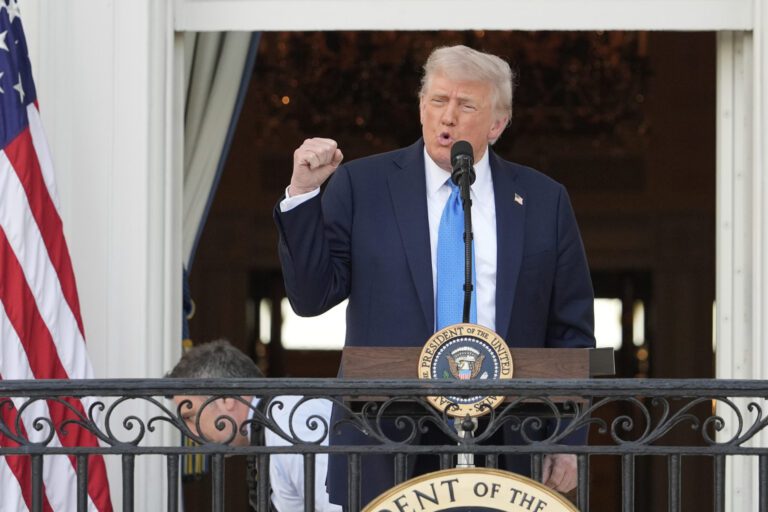Navigating Legal Waters: Media’s Response to Trump’s Defamation Lawsuits
President Donald Trump’s legal confrontations with media outlets over alleged defamation are leading news companies to make critical choices. With threats of substantial litigation and the potential for costly settlements, the landscape of journalistic integrity is in a precarious position.
Increasing Defamation Lawsuits Affecting Media Outlets
In recent years, there has been a notable surge in defamation lawsuits. These legal actions utilize established frameworks to hold news organizations accountable for disseminating false information, often resulting in hefty settlements that reach into the millions.
Key Statistics:
- Multi-million dollar settlements have become common as companies aim to mitigate reputational damage.
- Heightened scrutiny exists around the validity of some of these lawsuits that some critics argue are more intended to intimidate rather than to serve justice.
Trump’s Legal Strategy: A Tool for Intimidation
Former President Trump is often accused of employing litigation as a means to intimidate media organizations that publish unfavorable stories. Critics argue that many of his lawsuits may lack substantial merit, suggesting they are intended as weapons against his critics.
- Frivolous Lawsuits: Many observers compare Trump’s legal tactics to a form of harassment against adversaries, especially concerning entities that provide negative coverage.
- Settlement Over Court Battles: Following Trump’s victory in the 2024 election, several media enterprises opted for settlements rather than engaging in lengthy and potentially costly trials.
Case Study: ABC News
In December, Trump settled a lawsuit with ABC News for $16 million, following host George Stephanopoulos’s remarks that Trump had been “found liable for rape.” Legal experts believed the network could have successfully defended its position based on the high legal standards necessary to prove "actual malice."
Legal Perspectives: Opinions from Experts
Timothy Zick, a law professor at William & Mary, highlights a shift in strategy among media firms. He notes:
“Some firms feel that settling is a more strategic move than enduring extensive court battles. In instances involving the president, it may often feel safer to settle and evade unwanted scrutiny.”
Other Legal Actions
Trump’s legal offensive extends beyond defamation lawsuits. For instance, he filed a $20 billion consumer fraud lawsuit against CBS Inc. regarding its editing of a Vice President Kamala Harris interview. CBS has sought dismissal of this suit, but Paramount Global, CBS’s parent company, is now engaged in delicate merger negotiations, factoring in the ramifications of an ongoing lawsuit.
Implications for the First Amendment
As these lawsuits pile up, they raise significant concerns regarding the freedom of the press. Advocacy groups, such as the Freedom of the Press Foundation, have expressed demoralization about potential settlements that they believe might set a dangerous precedent. Seth Stern, the advocacy director, stated:
“The CBS lawsuit and its possible settlement could embolden more attempts to silence critical media coverage.”
The Future of Defamation Lawsuits
Legal experts warn that if high-profile litigation trends continue without rebuff, there may be broader implications for journalistic practices. A pivotal case, New York Times Co. v. Sullivan, established the "actual malice" standard, which helps protect the press. Some conservative factions are pushing to challenge this ruling, which could fundamentally alter the landscape of defamation law.
Possible Outcomes:
- If Sullivan is overturned, media outlets might preemptively avoid publishing hard-hitting investigations for fear of litigation.
- However, robust anti-SLAPP laws exist in various jurisdictions, providing avenues for media organizations to counter frivolous lawsuits effectively.
Moving Forward: Strategies for Media Outlets
As news outlets navigate this complex arena, they have several strategies available:
- Anti-SLAPP Regulations: Enable defendants to recover costs when facing meritless suits.
- Motion to Dismiss: Encourages judges to cull baseless cases promptly.
- Judicial Sanctions: Potential repercussions for lawyers who file frivolous lawsuits.
Conclusion: A Challenging Path Ahead
News organizations are increasingly confronted with difficult choices amid a wave of defamation lawsuits spearheaded by Trump. While many may choose to settle, the ongoing threat raises critical questions about media freedom and accountability. Legal experts predict that the landscape will evolve, and perhaps this period of intimidation will serve as an anomaly in U.S. political history.
For more insights on the implications of defamation laws and media freedoms, consider checking resources like Freedom of the Press Foundation and The New York Times.


